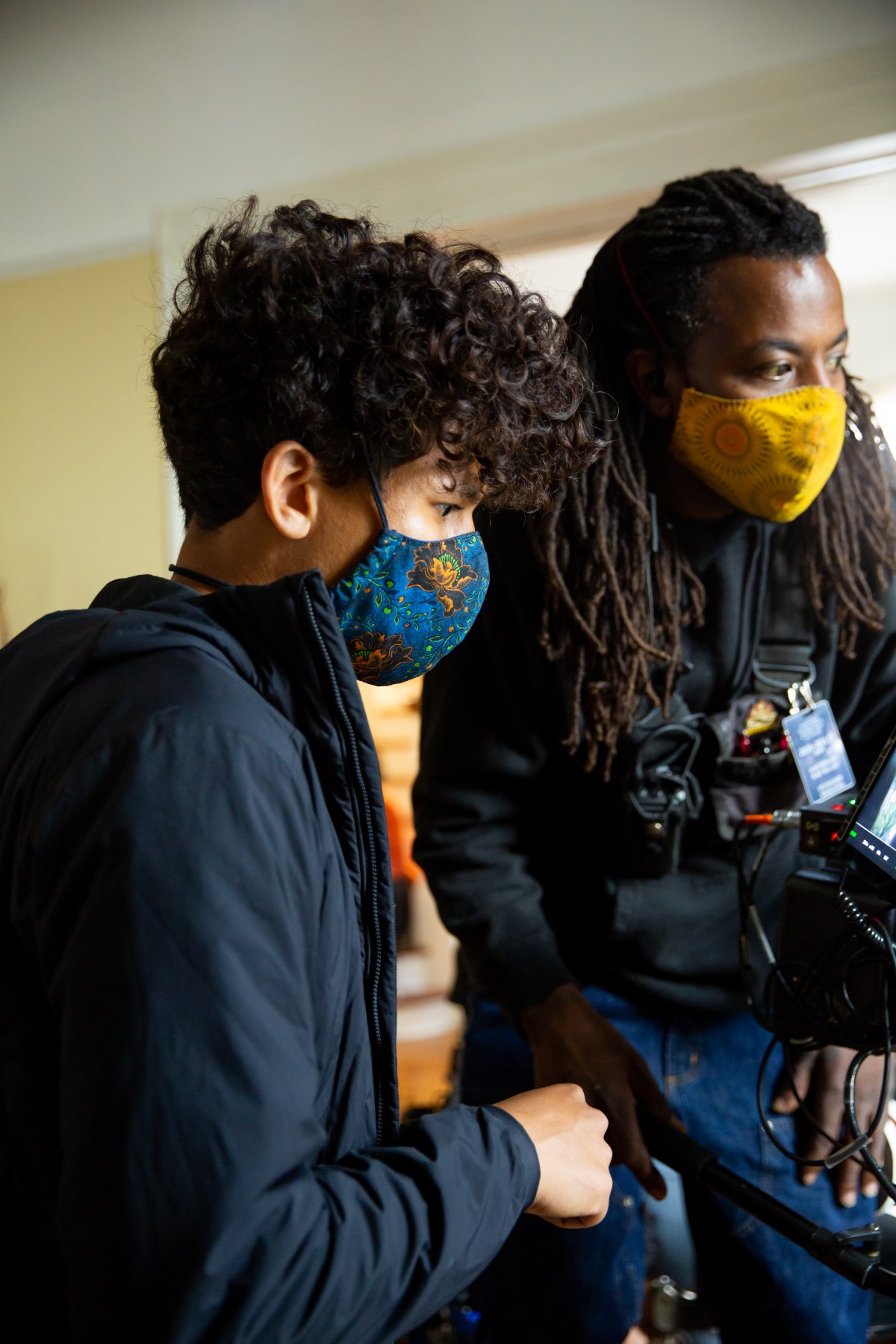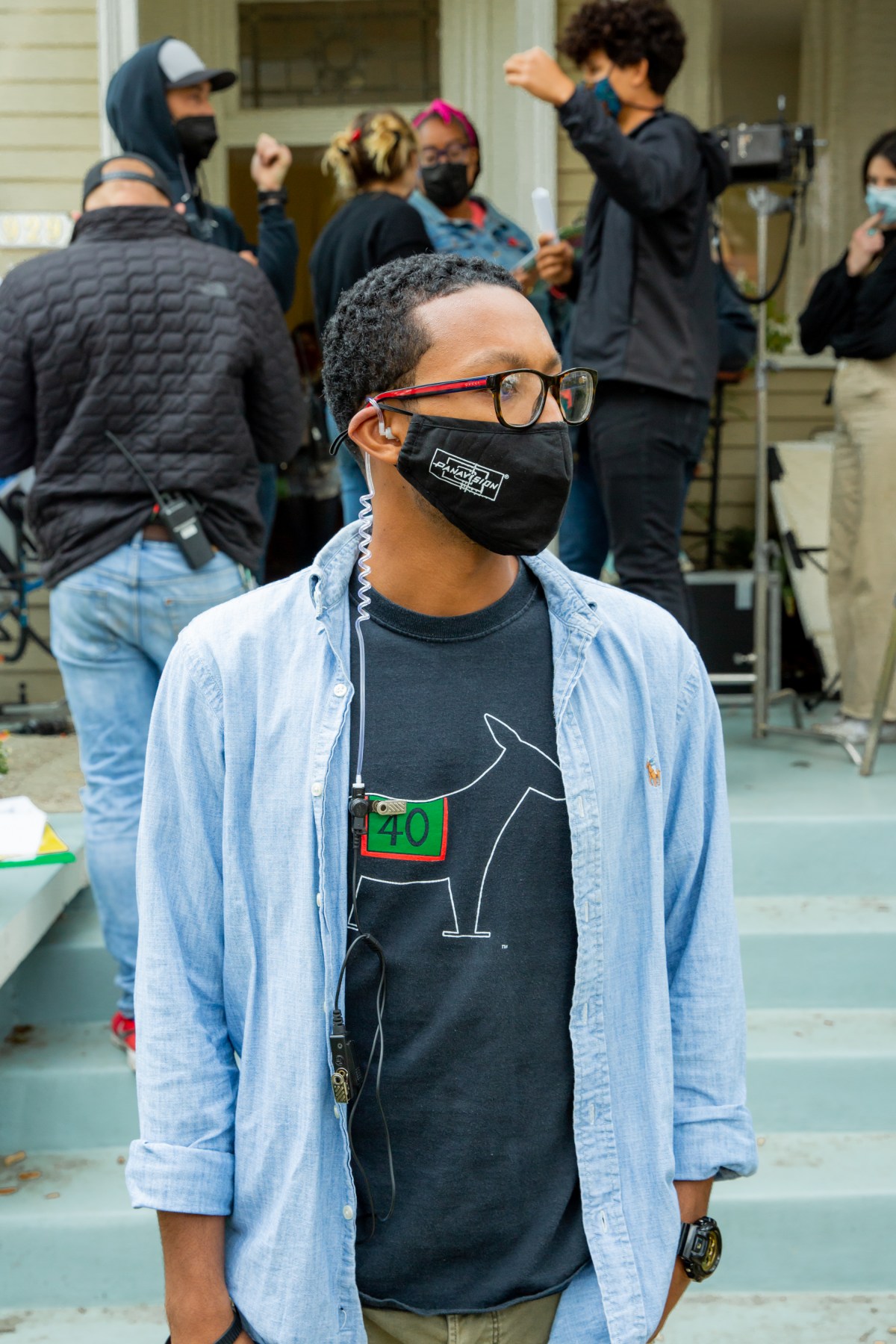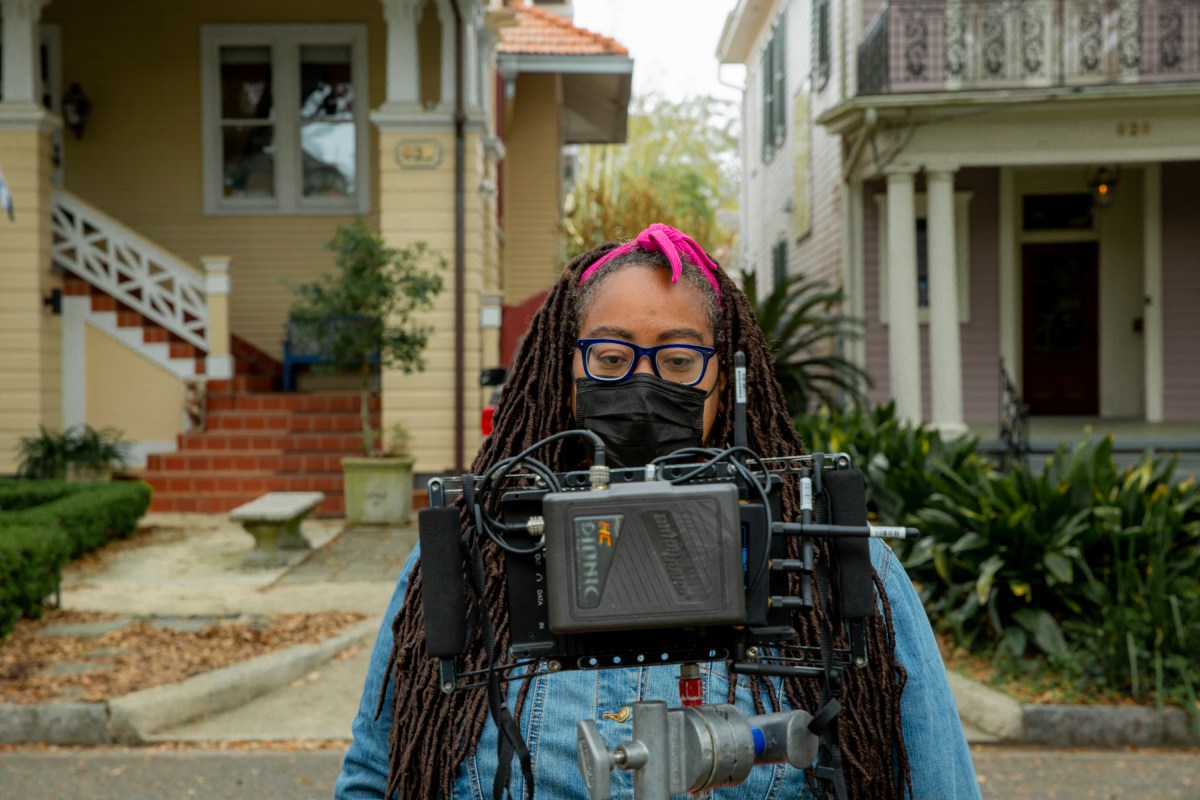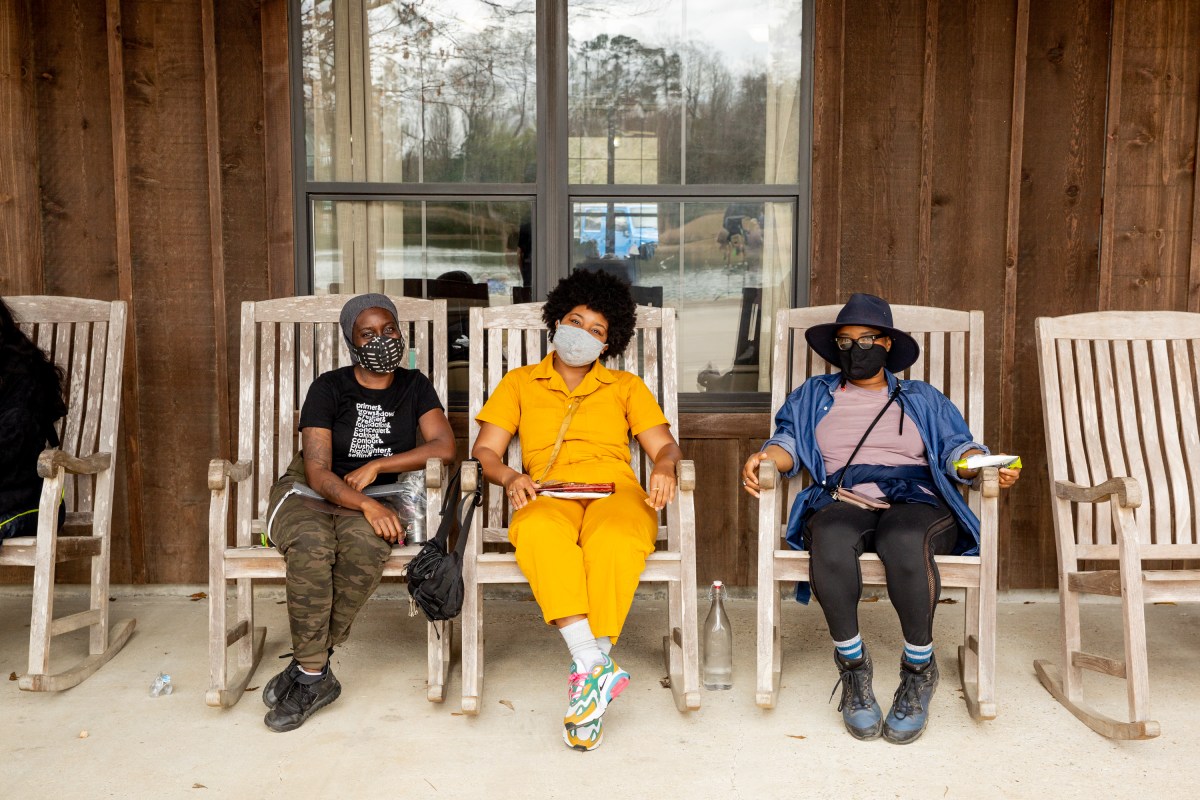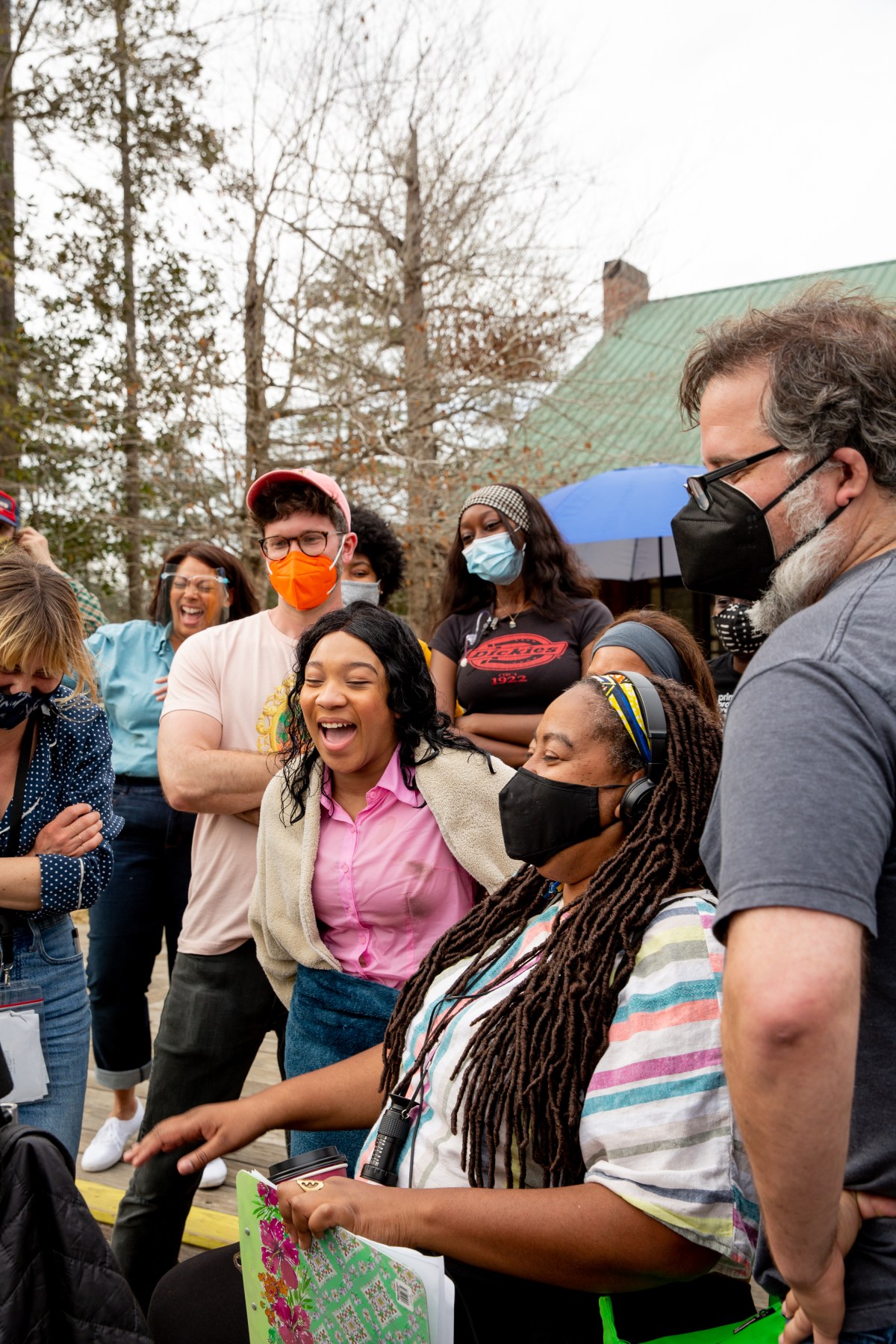Angela Tucker is a writer, director and Emmy-nominated producer who makes narrative and documentary films. Her most recent projects are “The Trees Remember,” a fiction series with REI Co-op Studios, and “I Can’t Change 400 Years Four,” a short documentary co-directed with Kristi Jacobson streaming on Mother Jones and PBS’ Independent Lens.
Her directorial work includes “All Skinfolk Ain’t Kinfolk,” a documentary short that aired on PBS’ Reel South; “All Styles,” a dance narrative feature available on Showtime; “Black Folk Don’t,” a documentary web series featured in Time magazine’s “10 Ideas That Are Changing Your Life,” and “(A)sexual,” a feature-length documentary about people who experience no sexual attraction that streamed on Netflix and Hulu.
She also produced “Belly of the Beast,” a film directed by Erika Cohn that broadcasted on PBS’ Independent Lens and was a New York Times Critic’s Pick. Her production company TuckerGurl LLC, is focused on stories that highlight underrepresented communities in unconventional ways. Tucker was also a Sundance Institute Women Filmmakers Initiative Fellow and a recipient of the inaugural William Greaves Fund from Firelight Media. She received her MFA in Film from Columbia University. Tucker is represented by Corrine Aquino and Hayley Jones at Artists First.
Tucker partnered with REI Co-op Studios to create “The Trees Remember” short film series. Spanning across 60 years, this three-part series of compelling, reflective, and sometimes humorous short fiction films feature Black women of different ages growing and thriving in the outdoors. She shares more about making the series.
Editor’s note: This interview has been edited for length and clarity.
Q:
Can you share more about the inspiration behind the series title and its relation to the films?
Angela Tucker:
When thinking of a title, my cowriter [Isha Chari] and I wanted something that felt like it was tied to both memory and identity. “The Trees Remember” comes from an African proverb. Though the proverb is “tree” (singular), we changed it to “trees” (plural) to make it feel less specific to one place and [more] symbolic of nature in general. Each film includes a moment where a Black woman makes a much-needed connection with a loved one in the outdoors. Nature provides the space for connections like these and has been doing so since the beginning of time. The series reflects this by being set in three different time periods.
Q:
How would you describe your relationship to the outdoors and how did that find its way into your work?
Angela Tucker:
I’m born and raised in New York City, but both of my parents grew up in kind of rural areas around Appalachia. Over the summers, I would always go to visit where they grew up and we’d go fishing or we’d go hiking. So, I always saw the dichotomy between being in this big city where people weren’t really engaging in the outdoors a lot, but then over the summers, engaging in the outdoors quite a bit.
I loved the time that I got to spend [outside], particularly with my dad fishing, because it was a time where, as a little girl, I could be with my dad and he would show me how to fish and it was our one-on-one time. I really valued that a lot. And then one summer I did Outward Bound in Maine and that’s really where I fell in love with hiking because I got to be in the mountains in Maine and be independent and do my own thing and hike, and it was great. So, I always come back to the outdoors when I want some clarity or just focus. I take a walk, even if it’s in like a little park in my neighborhood, just to be outside and just kind of take it all in.
Q:
How did your relationship to the outdoors influence this series of films?
Angela Tucker:
These pieces are written by myself and my best friend, Isha Chari. She’s been my best friend since fifth grade, so there’s a lot of both of our lives in these stories. I really wanted to show, particularly in 1960, a mother and daughter finding a connection through being in the outdoors, specifically fishing, because that was something that both she and I grew up with as kids—that being the tool that our family would use to get together and be outdoors was fishing. So that’s definitely part of our lives and one fun detail in “Movement.” There are also some photos in “Movement” that are my actual family. I wanted to be sure that I incorporated my family into the piece because that meant a lot to me to do as well. I also go hiking all the time, so I definitely wanted to include hiking, and “Maintenance” was the perfect kind of vehicle for that.
Q:
What do you think brands like REI should or could be doing differently in terms of how they frame nature?
Angela Tucker:
I think that there has been an issue with the branding of the outdoors in the sense that people think of it as climbing mountains with all of this expensive gear. And that’s what being outdoorsy is. And I think that brands have created that in a way. But now more than ever, it’s important for people to understand that nature is for everyone. And that walking in the park is as much being a part of nature as doing these high-octane activities. And because nature is for everyone, nature is for people of all ages, too. I think there’s kind of an idea of a very in-shape kind of person that nature is for. So, coming up with branding that speaks to how we can show the world that nature is for people of all walks of life, of all races, of all socioeconomics. I believe that the idea of what the outdoors are is changing. We’re in a moment right now where people are having a better understanding of that. And I think these films play a role in that. So, I just think it’s important to have people think about the outdoors in a much broader and more accessible way than they probably have been. And these pieces can play a part in that.
Behind the scenes: “Migration”
Watch the short film here.
Q:
Can you share more about the film “Migration”?
Angela Tucker:
Migration is a period piece in that it was a moment of the pandemic that has passed. It is pretty cathartic in a way to be past that time when there was so much fear and sadness—and there still is—but I think we’re all in this moment where we can see the light at the end of the tunnel. I’m grateful that we got to make that piece because I feel like years and years down the line, we’re going to look back at this time and look back on the work that was created during this time, and it’s going to feel special that we’ll have something that we made.
Nature creates community just by virtue of creating opportunities for different people to connect. In “Migration,” the outdoors is a metaphor for [the main character], Pepper, about the world at large—that the world is missing her. When she starts going outside again, she’s able to reconnect with her bird, her neighbor, but also herself. I think the outdoors allows you to connect with other people and also allows you to connect with yourself.
Behind the scenes: “Maintenance”
Watch the short film here.
Q:
Can you share more about the film “Maintenance”?
Angela Tucker:
Trail maintenance was a metaphor for, you know, love. I go hiking all the time, so I definitely wanted to include hiking. “Maintenance” was the perfect kind of vehicle for that. There’s a whole other conversation around being intentional about the spaces that you are at in the outdoors. Trail maintenance is kind of that. We can all hike and do all these things, but there is reminding people that there is a process of keeping these spaces tidy. And if you’re going to engage in them, think about that. It’s something that’s as much your responsibility as anyone’s. So that’s in there in a subtle way, even though that story is more about relationships.
Behind the scenes: “Movement”
Watch the short film here.
Q:
Can you share more about the film “Movement”?
Angela Tucker:
The “Movement” cowriter, Isha Chari, is a mom and has three kids. So the idea with “Movement” was making something that is kind of like the talk that typically young Black men have with their fathers and changing that a bit—having it be young Black girls with their mothers and setting it in a different time period, but having it speak to the conversations that Black mothers and daughters are having as well because there’s kind of less about that. But there’s a talk that Black mothers have to have with their daughters about how they are in the world and what’s happening. And so, she wanted to write something like that. And I thought that was an interesting piece of it—incorporating fishing into it. So, we thought, what are some ways we can show the outdoors as part of these storylines, but always having it be slightly different than you expect?
All photography by Mariana Sheppard .
“The Trees Remember” series is now available to watch.



